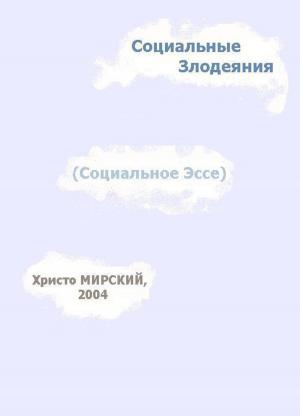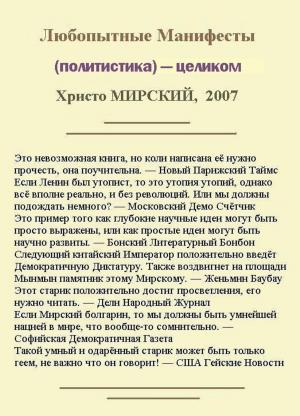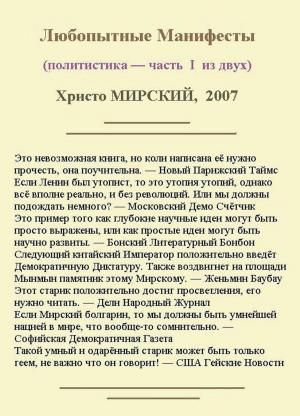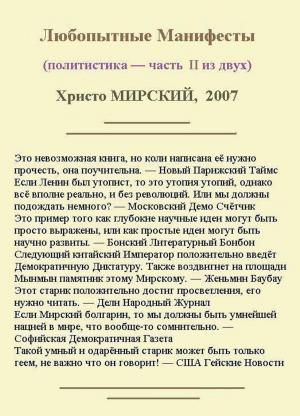Urrh, Cum Commentis (Impressions On Etymological Canvas)
Nonfiction, Reference & Language, Education & Teaching, Educational Theory, Multicultural Education, Language Arts, Linguistics| Author: | Chris Myrski | ISBN: | 9780463779507 |
| Publisher: | Chris Myrski | Publication: | January 1, 2020 |
| Imprint: | Smashwords Edition | Language: | English |
| Author: | Chris Myrski |
| ISBN: | 9780463779507 |
| Publisher: | Chris Myrski |
| Publication: | January 1, 2020 |
| Imprint: | Smashwords Edition |
| Language: | English |
So this is the full version of my enormous linguistical and philosophical etc. book. Here I am going from the etymology with purpose to explain popularly, how people of various nations think about .../every/thing, and in almost /all/ Indo-European languages, what ideas are hidden behind the words, how they are related with other words and roots, and with other languages; that is why I say that these are /impressions on etymological canvas/. Only let me say in the beginning that you have to take first the Excerpts and see how you will like them, as well also how you will be able to /search/ for some words, and this is why I advise you to take the PDF file and read it on decent computer, not on mobile devices. |
The major used languages are: English, German, and Russian, but also very often Latin, French, Greek (usually old), many Western languages, as also Slavonic ones, and many other old languages (like Arabic, Persian, Sanskrit and others). This is a book about Creation viewed through the words. It is also philosophical book, there are many comments and suggestions of the author. It is result of more than a decade of work in this area, albeit by a dilettante (at least in the beginning); but being not exactly with linguistic education I am making the things much more interesting for everybody. It is entirely unorthodox, but it is hard to read, I must warn you, it is rather to be used as handbook, to look for something, but for this purpose one has to have read it, however superficially, once, and to have become used to the sundry abbreviations that I use. ||
Here follows some beginning address of the author to the readers. |
This book is not what you might think it is, because it isn’t work of fiction (say: action, thriller, or love story), neither dry etymological research, nor philosophical essay, but has elements of all this and something more. You may think it is some popular etymology (guide around the interesting world of words), though certain ideas that I give here are beyond any etymology and I also work in several languages (like: English, German, Bulgarian, Russian, French, Italian, Latin, Greek, even Persian and Sanskrit). Although some knowledge of foreign languages (and I don’t say exactly of which) is preferable this isn’t strongly required (because almost every person understands some other language besides his /her mother language, or, then, every language contains many foreign words); and if you don’t know some words or don’t believe in the given explanations (or even if you believe in them) you may do your own research in every other language that you know or use. It might not sound decent to boast that this is an unique work but it is — what can be explained mainly with the fact that my guesses are not strictly scientific, but then they are interesting (what should not mean they are not true). In a way, the book is popular explanation of all the things viewed through the eyes of different nations; and when I say “all” then be sure that this work is an open system and many more things may be added even by you. |
Still, being very informative, this isn’t a book to be read in slumber, or to be read and forgotten, but to be used as kind of handbook — if you want to think about what you say (what young people, as well as old ones, like to do, only those in the middle don’t like, neither to read, nor to think because they have no time for such “luxuries”, they have to win their bread). So, those that like to think about the words are, still, a big amount, but they are handicapped by not having enough knowledge about the words and roots and relations between them. And this is so because they have not yet read this book, but now they may amend this failure. At least I, for my part, have answered many questions, and you are invited to participate in the answers. And I’ll tell you, some of them are pretty piquant, not to say cynical, so maybe you would like them. ||
So this is the full version of my enormous linguistical and philosophical etc. book. Here I am going from the etymology with purpose to explain popularly, how people of various nations think about .../every/thing, and in almost /all/ Indo-European languages, what ideas are hidden behind the words, how they are related with other words and roots, and with other languages; that is why I say that these are /impressions on etymological canvas/. Only let me say in the beginning that you have to take first the Excerpts and see how you will like them, as well also how you will be able to /search/ for some words, and this is why I advise you to take the PDF file and read it on decent computer, not on mobile devices. |
The major used languages are: English, German, and Russian, but also very often Latin, French, Greek (usually old), many Western languages, as also Slavonic ones, and many other old languages (like Arabic, Persian, Sanskrit and others). This is a book about Creation viewed through the words. It is also philosophical book, there are many comments and suggestions of the author. It is result of more than a decade of work in this area, albeit by a dilettante (at least in the beginning); but being not exactly with linguistic education I am making the things much more interesting for everybody. It is entirely unorthodox, but it is hard to read, I must warn you, it is rather to be used as handbook, to look for something, but for this purpose one has to have read it, however superficially, once, and to have become used to the sundry abbreviations that I use. ||
Here follows some beginning address of the author to the readers. |
This book is not what you might think it is, because it isn’t work of fiction (say: action, thriller, or love story), neither dry etymological research, nor philosophical essay, but has elements of all this and something more. You may think it is some popular etymology (guide around the interesting world of words), though certain ideas that I give here are beyond any etymology and I also work in several languages (like: English, German, Bulgarian, Russian, French, Italian, Latin, Greek, even Persian and Sanskrit). Although some knowledge of foreign languages (and I don’t say exactly of which) is preferable this isn’t strongly required (because almost every person understands some other language besides his /her mother language, or, then, every language contains many foreign words); and if you don’t know some words or don’t believe in the given explanations (or even if you believe in them) you may do your own research in every other language that you know or use. It might not sound decent to boast that this is an unique work but it is — what can be explained mainly with the fact that my guesses are not strictly scientific, but then they are interesting (what should not mean they are not true). In a way, the book is popular explanation of all the things viewed through the eyes of different nations; and when I say “all” then be sure that this work is an open system and many more things may be added even by you. |
Still, being very informative, this isn’t a book to be read in slumber, or to be read and forgotten, but to be used as kind of handbook — if you want to think about what you say (what young people, as well as old ones, like to do, only those in the middle don’t like, neither to read, nor to think because they have no time for such “luxuries”, they have to win their bread). So, those that like to think about the words are, still, a big amount, but they are handicapped by not having enough knowledge about the words and roots and relations between them. And this is so because they have not yet read this book, but now they may amend this failure. At least I, for my part, have answered many questions, and you are invited to participate in the answers. And I’ll tell you, some of them are pretty piquant, not to say cynical, so maybe you would like them. ||















